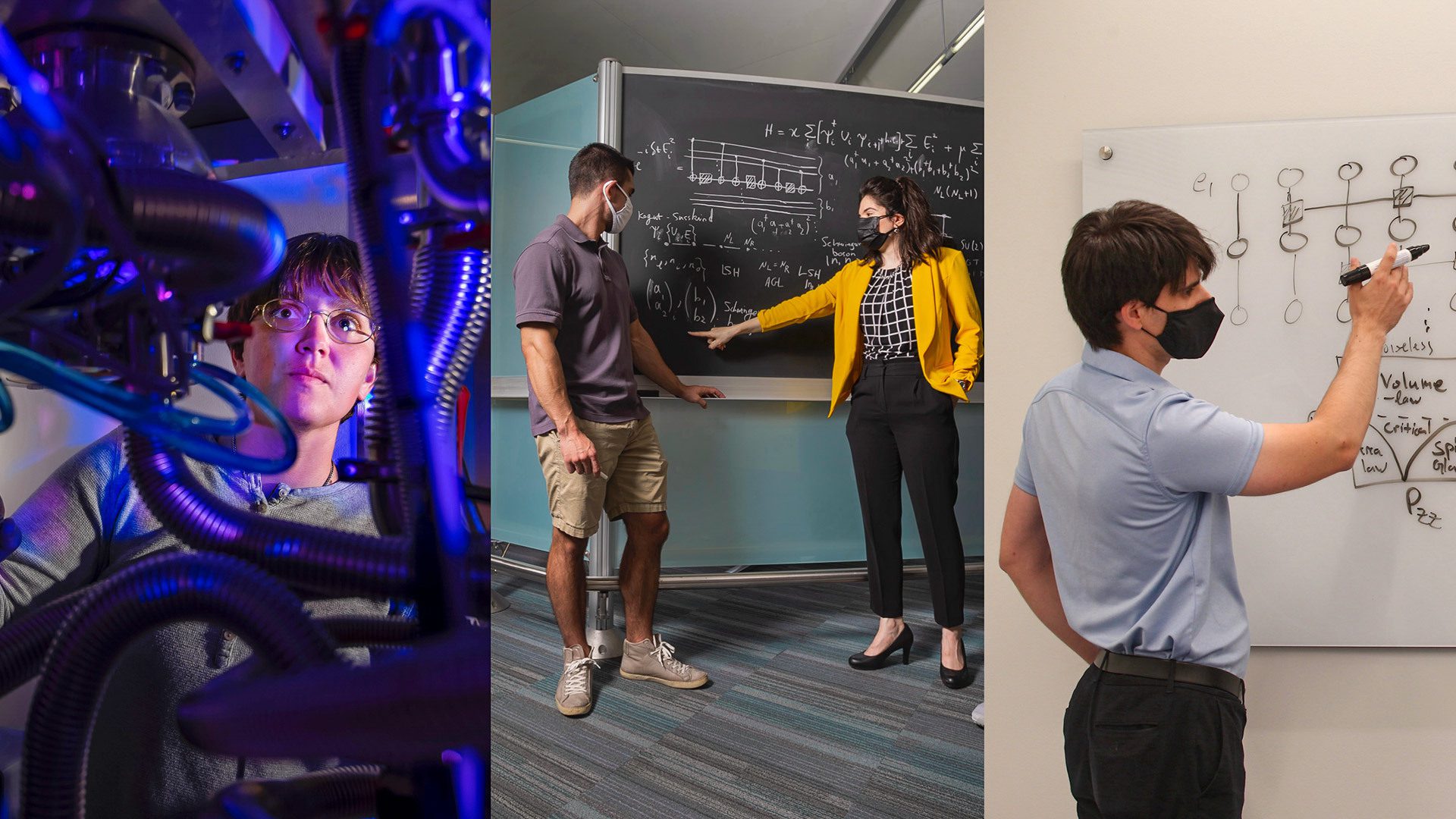- May 13, 2025
- By Tom Ventsias
The Quantum Leap Challenge Institute for Robust Quantum Simulation (RQS) has received a $2.5 million National Science Foundation (NSF) award that will jump-start several new research thrusts and an undergraduate research program.
The institute launched in 2021 with a $25 million NSF award. This new supplemental funding strengthens the institute’s efforts in quantum simulation—a fundamental step toward realizing a world where quantum computers can predict the behavior of complex quantum systems, potentially revolutionizing the study of chemistry, materials and high-energy physics.
“The promise of quantum simulation as an indispensable tool for exploring the behavior of systems with strong quantum effects makes it a central intellectual challenge,” said Andrew Childs, a professor of computer science and the director of RQS. “We’re thankful for the strong federal support we’ve received to address this challenge, and will continue to forge a path toward scalable, fault-tolerant quantum computation.”
Ongoing research in RQS involves both theoretical and experimental work that spans computer science, engineering and physics. The institute joins quantum experts from the University of Maryland (the lead institution), Duke University, Princeton University, North Carolina State University and Yale University, as well as researchers from the National Institute of Standards and Technology (NIST).
[DARPA Partners With Maryland to Drive Quantum Innovation, Strengthen ‘Capital of Quantum’]
Among other priorities, the supplemental NSF funding will support new discoveries in logical qubits, an effort led by Michael Gullans, a physicist at NIST and a senior investigator in RQS. Logical qubits are groups of individual qubits—the smallest units of quantum information, equivalent to “bits” representing a 0 or 1 in standard computing—that can guard against errors and withstand environmental “noise” or other sources of interference.
Plans call to push the state-of-the-art in tests of quantum advantage and quantum simulation using logical qubits as well as make key hardware improvements that are needed for the next generation of experiments.
These efforts will set the stage for transformative developments in noise-robust quantum simulation and computation and make a key step toward eventually solving real-world computational problems using quantum simulation platforms, Gullans said. He notes that the close ties and varied partnerships of the RQS team with industry groups working on quantum computing can offer a variety of pipelines from these academic efforts to industry.
A second research thrust will focus on strongly interacting fermions—like the electron, an “elementary” particle that cannot be further subdivided and a frequent object of study in quantum physics—and will add two new experimental platforms to RQS for conducting analog quantum simulations.
Mohammad Hafezi, a professor of physics and electrical and computer engineering at UMD and a senior investigator in RQS, will lead these efforts, with assistance from quantum faculty at UMD and Princeton.
The aim of the RQS effort is to examine two experimental platforms—one based on solid-state systems and the other on ultracold atoms. Both are governed by similar Hamiltonians—a mathematical description of the total energy of a system, incorporating both kinetic and potential energy—with comparable dynamics and many-body physics. The researchers believe that this setup enables the investigation of analogous physical phenomena and the possibility of sharing insights between the two domains.
A third effort supported by the supplemental NSF award will increase the number of undergraduate students participating in RQS research. Erin Sohr, assistant director of education in RQS, is leading the institute’s efforts to create an undergraduate research experience (REU) program within RQS groups at the University of Maryland.
The students will be embedded in existing RQS projects for up to one year and mentored by graduate students, postdocs and faculty members. The undergraduates will see their work contribute to the broader enterprise of the group’s research and learn about the structure and scope of a fully realized research project; each will conclude their experience by presenting a research poster at a capstone showcase.
RQS receives administrative and technical support from the University of Maryland Institute for Advanced Computer Studies.
